- Hey Dullblog Online Housekeeping Note - May 6, 2022
- Beatles in the 1970s: Melting and Crying - April 13, 2022
- The Beatles, “Let It Be,” and “Get Back”: “Trying to Deceive”? - October 22, 2021
This piece by Rob Sheffield (whose most recent book is Dreaming The Beatles) just came out in Rolling Stone. Sheffield uses the lens of the new Peter Jackson documentary due out next August and put together from the same sessions that yielded Let It Be to consider, again, just why the Beatles came apart as and when they did. There’s nothing especially new in Sheffield’s analysis, but he deserves credit for making some good points trenchantly.

Sheffield summarizes the situation thus:
“In the end, it’s really a story about four friends trying to hold on to one another in dark and confusing times — searching for a way to shine on till tomorrow. Like everybody else, John, Paul, George, and Ringo witnessed the end of the Beatles with shock and disbelief, no idea how to apply the brakes.”
This perspective largely accords with Mikal Gilmore’s 2009 assessment in the same magazine, and Gilmore’s article remains the best in-depth consideration of the psychology and maneuvering that went on after Brian Epstein’s death.
Where Sheffield shines is his discussion of the music. Take this, for instance:
“‘Get Back’ began as a political statement, ‘Commonwealth Song,’ defending Pakistani immigrants, a hot topic in England after racist politician Enoch Powell’s anti-immigration crusade. (Paul had already addressed the controversy with ‘Ob-La-Di, Ob-La-Da,’ an ode to West Indian-immigrant family life — the White Album’s most explicitly political song.)”
Yep, the oft-derided “Ob-La-Di, Ob-La-Da” is actually making a timely point about immigration, rather as a song celebrating a Mexican migrant family’s home life in America would today.

Unsurprisingly and accurately, Allen Klein emerges as the most unlikeable and destructive person involved in the breakup. But Sheffield also reminds us that Lennon’s and McCartney’s decisions to include their wives as artistic partners, heavily criticized as it was, in fact constituted a decisive break with rock-star orthodoxy:
” . . . their new wives were independent adults, artists with their own careers, women who’d already married and divorced and had kids. There weren’t many rock stars of their generation with such a prophetic idea of male-female partnerships. But they were looking to explore new models of monogamy, outside the nouveau-hippie patriarchy. When Mick Jagger sniffed at Yoko and Linda — Paul was fond of quoting Mick — ‘I wouldn’t have my old lady in the band,’ it was exactly the mentality John and Paul were looking to escape.”

Ultimately, the more I read about the breakup, the more it is revealed as the Goldilocks scenario in reverse: if everything hadn’t gone so exactly wrong at precisely the worst time, the final split wouldn’t have happened. But why do we (at least some of us) still care, 50 years on? Short answer: the music, of course.

Or, as Peter Jackson puts it in the quote that Sheffield ends the article with: “They’re only the icons they are because the music was so majestically good. I’m not a musicologist, that’s not where I come from. But all I would say is, no matter if it’s two tracks or four tracks or eight tracks, there’s a joy in the songs that they sang. In decades and decades to come, it will never be dulled. It will never be suppressed. That joy, that infectious joy, is part of the human psyche now.”

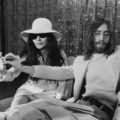
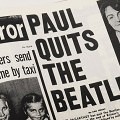
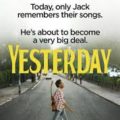
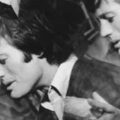
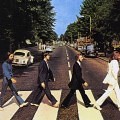
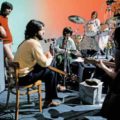
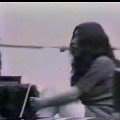
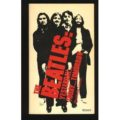

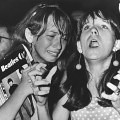


Why does everyone still care,50 years after the breakup? Yes,the music of course is the main reason. But,for me,it is also the relationship between John and Paul
But Gretchen, I don’t think we’d care about the Lennon/McCartney relationship if it weren’t for the music. The music is what it all comes down to in the end.
Yes! This article made a stir in other places I inhabit around the web when it came out, because it’s a mainstream article that manages to go beyond the usual tropes surrounding the break-up of the Beatles, a la Doggett, and was pretty equal in its treatment, and made it clear John wasn’t completely tuned out from 1966 onwards. I loved the shout-out to Ob-La-Di, Ob-La Da as well! I think Sheffield has been listening to some of the criticism about his Dreaming the Beatles book (though I mostly enjoyed it). 🙂
.
And while Gilmore’s article covered some of the same items, this one had the advantage of knowing about Peter Jackson’s upcoming release, and can hopefully stave off some of the accusations that are already floating around about “whitewashing.”
I really think their music is the reason we still care about the Lennon/McCartney/Harrison/Starr relationship after all these years.
All relationships are complex. Freddie Garrity had an intense and complicated relationship with The Dreamers. Peter Noone had an intense and complicated relationship with his Hermits. But here we are, on a Beatles blog.
I quite enjoyed “Dreaming the Beatles” and in general appreciate that broad-lens view of the band. I agree that without the music being what it is, the rest just becomes gossip for its own sake. The insight into the interpersonal relationships feeds moreso into the music, adding a new layer of appreciating a song. For example “The Ballad of John and Yoko” is fun on its own for a number of reasons before one learns that it’s only John and Paul making the music; the guitars aren’t George and the drums aren’t Ringo, and so it’s really the ballad of John and Paul, isn’t it.
Also the Super Deluxe re-releases have really deepened my enjoyment of Sgt. Peppers and the White Album… same music but you hear new things.
Although the music is what initially drew us in, we have to acknowledge that there is something else going on as well. If I’m honest with myself, I have to admit that there are many bands and artists that are equally talented as the B’s. However, I know nothing about Pete Townsend’s childhood, Keith Richard’s wives
I sent the post before I was finished with my point, but you get where I was going.
Why do people obsess about anything? People who read this blog love the Beatles for a myriad of reasons.
Nancy,
I was curious about your opinion on this passage:
“Many observers over the years — not least Paul himself — have wondered aloud why he didn’t try to warn them. Was Mick conniving to trip up his rivals by letting them fall prey to his least favorite businessman? Could even Mick be that Machiavellian?”
Do you think Mick purposefully did not warn Paul when he asked about Klein? Do you think he deserves a place in history for contributing to the breakup of The Beatles?
Going from memory here, but I thought Mick warned Paul in private about Klein and then clammed up when it came to talking to John and the others about Klein.
.
I don’t know what Mick’s motives were for not speaking up. Not a good look, to say the least.
If Mick warned Paul in private about Klein and then clammed up when it came to talking to John and the others about Klein, it was certainly an excellent way to drive a wedge between John and Paul.
I really wish I could remember exactly where I read that. A research project I’ll take on tomorrow!
.
I kind of wonder if Mick just didn’t want to commit himself more “publicly,” especially if Klein still had some kind of financial hold on the Stones.
Thanks Nancy. My take was, no matter how friendly they were, The Beatles were still competitors. Mick may have took that opportunity.
OR, he just didn’t want any responsibility in the matter.
I still think it’s shitty he didn’t just tell Paul the truth.
Love the new format!!! Much easier to read.
Klein or no Klein, I think they were heading for the end anyway. Without Klein, George is still disillusioned, there’s still Yoko, John’s still found H, there’s still Linda with Paul wanting to start a family, still the Apple fiasco. If Allen Klein never entered the picture there were still so many cracks that would eventually lead to a crumbling
Maybe. There were certainly cracks, but absent Klein’s influence, I wonder if those cracks might have led to the Beatles becoming a bit looser in terms of everyone pursuing solo projects and only coming together occasionally, but continuing to release music as a group. It’s the “all or nothing” that Klein pushed that led to things splintering just how and when they did, in my opinion.
I agree. I think had Klein not come in to the picture the Beatles may have still parted ways but there might have been less animosity, less tension and their friendships would have been more salvageable which may have made them more open to doing projects together in the future. With out Klein there’s possibly no 3 against 1 scenario that left Paul so bitter and betrayed, no Paul suing the group which left them all bitter and betrayed and no Klein preying on Johns neediness for affection and whispering in his ear egging on his anger against Paul.
Leaving a test comment to see if the reply function works with the subtle re-design (kudos, btw)!
Self-reply test ahoy!
Thanks, it’s a relief to have an updated theme that works with the current version of WordPress. Things should be up and running now: if you spot anything that isn’t working properly, please let us know.
The theme looks wonderful and loads very quickly – good work! Are all the comments from the previous ten days gone? There were a couple of interesting conversations (interesting to me, anyway) that I can’t see.
Kristy, I don’t think they’re gone, but they may no longer be showing up in recent comments. Let me see what I can do.
New theme looks fab.
@Nancy Carr , I can only access 1 page of recent comments, there is no “older posts” button or something like that. Is that on purpose?
I’ll have to check on that, Jesse. There are some differences from the old setup that we can’t control, unfortunately.
Is that why my comments are gone? Can’t remember if it was this post or One Two Three post, I made a couple last week(after Sept 2nd before the 12th, which is where the replies seem to disappear on the most recent posts), bunch of comments from others I remember reading are gone as well.
In any case, glad everything seems to be up and running, looks good too. I know there were some other troubles with the old one over the years, fingers crossed this one will keep ticking smoothly. 🙂
MG, that is possible. I’m so sorry if we accidentally deleted anyone’s comments — switching the site was tricky and some things may have (virtually) fallen off.
.
The good news is that the site should now be stable and more functional. We were starting to have multiple problems with basic operations and switching the theme was a cyber emergency.
.
To anyone whose comments are gone: sincere apologies, and if you’re willing to repost them they should stay up now.
I’ve also wondered about Mick’s role and have read various takes on what happened. Fairly recently, I read (don’t ask me where!) that when he went to warn the others off Klein, Klein was sitting right there so he clammed up. Klein was still the Stones manager and I’m pretty sure they were having a hard time getting THEIR money out of him, so maybe he didn’t want to make matters worse.
So far, I haven’t been able to confirm that version, Laura, though it’s what I remember as well. Here’s what McCartney said in Anthology:
“Actually, I asked Mick Jagger when he came round,” McCartney said in Anthology. “‘What do you think?’ He said, ‘Oh, he’s all right if you like that kind of thing.’ He didn’t really warn us off him, so there it was – and that then was the three-to-one situation. In the Beatles, if anyone didn’t agree with a plan, it was always vetoed. It was very democratic that way, so the three-to-one situation was very awkward, and as a result, ‘things’ would happen.”
.
Found this in this Ultimate Classic Rock article.
Nancy, regarding Jagger’s role, this is reported as you describe in Ken McNabb’s “And In The End The Last Days of The Beatles”, in the chapters covering the events of January and February. Reading the book now. Excellent.
Love that quote at the end from Peter Jackson. I’m looking forward to this film, and seeing what he does with the footage. I wonder if any audio from the secret lunchroom tapes will be included? I hope so, as it really rounds out the picture. For one thing it’d be nice to clarify that George’s departure was after an argument with John, not caused by the “whatever will please you, I’ll do it” conversation with Paul. .
.
Regarding that conversation, has a more passive aggressive “argument” ever been caught on film? “I hear myself annoying you!”/”You’re not annoying me!”/”I’m just trying to help!”/”I’ll do whatever you want!” Lolsob. If Paul and George hadn’t both been so conflict averse they might have had a better relationship. The Amoralto Tumblr has a transcription of Paul saying something similar to John at some point during LIB: “I mean, I’ll — I’ll sing in a corner with Mal on the tour, or I’ll sit here, and I’ll — I’ll anything. ’Cause I enjoy it all. That’s the only thing I enjoy, actually.” I wonder which exchange happened first.
With all due respect, Paul actually said “I’m trying to help you.” A bit condescending, to say the least.
I have relistened several times to check. He actually says “I’m trying to help, you know..”.
Thank you for the completed quote. I will listen again. I am afraid I never hear the last bit because I’m too busy being indignant for George.
I like this quote from Amoralto:
If I ever get a chance to see this Peter Jackson version, I’ll focus on the beauty of the restoration. I’ll just let the pictures and sounds wash over me. The analytical part of my brain can go to sleep for the duration of this documentary.
It’s like watching King Kong. I want to believe a giant ape is climbing the Empire State Building. I want to watch King Kong without being preoccupied with conflicts between the director and the animator.
It’s the Beatles! In high-def! And I hope to see them in my neighborhood theater if I can do so safely.
I will never not stop saying that the idea of the breakup as a mistake—as Lennon’s emotional brinksmanship, amplified by Yoko and heroin, and finally made terrible reality by the post-Epstein business arrangements—didn’t originate with Mikal Gilmore in Rolling Stone. (Mikal’s a friend-of-a friend by the way.) Devin and I were talking of it on this site immediately after launch in 2008—and that’s because, once you dustbin the idea that Paul McCartney is History’s Greatest Monster, and if you know that three of the four Beatles had released solo work without breaking up the group, death-by-misadventure is the most sensible conclusion; especially given Lennon’s erratic nature during the best of times, which opiate-sodden 1969 definitely was not.
What happened in 2009 was that the idea finally appeared in Rolling Stone, which up to that point had been the main standard-bearer for the “Lennon Remembers” version of the breakup, where Paul is at best a sugar-pop Salieri, and at worst, in Almoralto’s pungent phrase, a “shrew-like control freak.” Rolling Stone was late to this party, as it was to every party, but Gilmore deserves maximum credit for the lucidity and force which has made this the standard narrative.
Nobody had really been digging into Beatles stuff in the ten years post-Anthology—the Anthology had seemed to say all there was to say. But by 2008 when Dullblog started, a certain kind of mind had digested all the new data enough to begin making new hypotheses. And after 35 years of reasons that simply fall apart—”Paul broke up the Beatles” (yes, the guy who was suicidal for three months over the breakup) or “Yoko broke up the Beatles” (don’t eat George’s biscuits or else) or “they had to break up because age or wedding bells” (ignore the Rolling Stones, please) or “they had to break up because each of them yearned to unleash creative genius restricted by Beatledom” (untrue with the possible exception of George)—after decades of that nonsense, a new theory was called for. One not tainted by John’s emotional needs, or Jann’s feelings about Paul as a quasi-romantic rival.
@Michael Gerber: If it was death by misadventure, if John ultimately wouldn’t have gone through with it himself, if the band’s breakup was not inevitable…what would have needed to happen to keep it together? What would the others have needed to do? Or not do? Would Paul have needed to accede to Klein? Or George and Ringo reject him? Would all three have needed to strongarm John into rehab? Should they have gone in a totally different direction musically, than they did on Abbey Road (i.e. another but better “back-to-basics” project, to simulate the time period where Lennon was definitely in charge?) The 4:4:4 arrangement proposed by John and sort-of George?
I can’t wait: https://www.youtube.com/watch?v=UocEGvQ10OE&feature=emb_logo
https://www.thebeatles.com/news/beatles-get-back-sneak-peek-peter-jackson
I know this might be a white wash of the truth of what the band was really going through but I have to say that after the year 2020 has been it made me so happy to watch the Beatles all be so happy together.
Also John being able to spin, while taking his coat off and keeping his tea cup perfectly balanced on his saucer- impressive!
John and Ringo walking with their arms around each other… awww. Linda and Yoko in friendly conversation. Always good to see George Martin. Now I know what Paul meant when he said there’s a bit where he and John are rehearsing a song as ventriloquists. LOL
The Yoko Linda moment made me happy, and Mo head banging to rehearsals. John with his arms around Ringo made me happy. Seeing George Harrison smiling at all made me happy. Paul playing daddy to Heather. How much bright pink, purple and fluro clothes they were wearing. Take my money Bottles!
I STILL LOVE THE BOTTLES